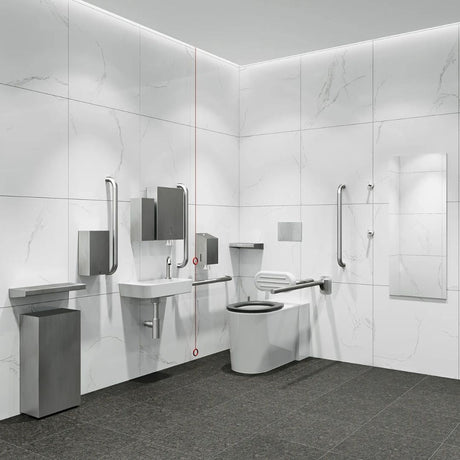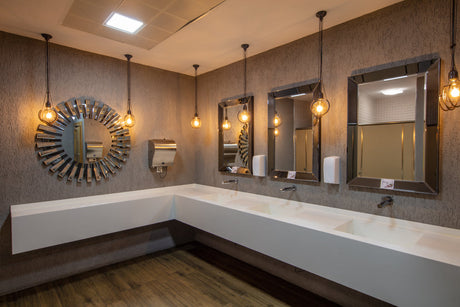We’ve established that regular loo roll is not great for the environment and can cause a lot of damage to the planet – from contributing to deforestation to adding to our ever-increasing waste problem. But when it comes to the alternatives – recycled and bamboo toilet paper – how do we know which is better for the environment?
So, we’ve put together a comparison of recycled toilet roll and bamboo toilet roll.
Want to know more about Bamboo Bobbi and the science behind it all? We’ve summarised the key facts of our commissioned independent report in this Bamboo Bobbi blog post .
Recycled toilet paper
Toilet paper made from recycled materials has a significantly lower environmental impact than virgin fibre. Recycled forms of loo roll are typically sourced from raw materials that originate in post-consumer sources (office paper, newspaper, magazines), from pre-consumer sources (off-cuts from printers) or from wood pulp .
PROS
- It doesn’t require or increase the demand for trees to be taken down and decreases the amount of material going to landfill.
- It lessens the amount of materials (especially water) and energy that goes into the whole manufacturing process. Producing recycled paper involves between 28 to 70 per cent less energy consumption than making virgin paper, and uses less water.
CONS
- The recycling process still involves chemicals and energy to break down and mix the recycled paper together .
- It also sometimes involves chemicals for some whitening and inking/dying, mainly bisphenol-A (BPA) . High exposure to BPA has been linked to fertility problems, heart disease and other conditions.
- Every time paper is recycled, it loses more and more of its quality. It can only be recycled 4 to 6 times before the fibres get too short and weak .
Bamboo toilet paper
As we discussed in previous blog posts on bamboo being environmentally friendly and the best brands of bamboo toilet roll , bamboo can be a great alternative to your typical loo rolls.
PROS
- Compared to regular toilet paper, bamboo does not contribute to the problem of deforestation. Bamboo is extremely adaptable and resilient as it can grow in typically inhospitable conditions and doesn’t need as many nutrients as other trees or plants. The most important thing about bamboo is that it is renewable – it actually re-grows after it is harvested – so it does not need re-planting.
- Water requirements for the growth of bamboo are far lower.
CONS
- However, for those of us in the UK, it must be shipped thousands of miles across the ocean before it reaches us – which uses and releases carbon emissions.
- Most of the large brands still use bleaching in the manufacturing process, which is unecessary and isn’t great for the environment.
SUMMARY
Overall, both forms of toilet paper are definitely more eco-friendly than your typical virgin paper toilet roll. However, bamboo toilet roll inches out as the winner in this case for a number of reasons:
- It avoids the problem of deforestation – and even though recycled toilet paper in theory also does, in reality this is not the case. Due to recycled paper losing its strength and quality every time its recycled, virgin paper is sometimes introduced into the process to make it stronger and more viable.
- And because of the above, people may have to use more of the recycled toilet paper, which increases the amount of waste going to landfill.
- The manufacturing of bamboo loo roll uses less chemicals than recycled toilet roll, but it does sometimes still involve bleaching.
We hope you found this guide helpful and, as always, if you have any questions or comments, please leave them below.
New for 2020 – Introducing our Bamboo Bobbi range , which includes bamboo toilet paper . Made from 100% sustainable, hand-cut bamboo it has a low environmental impact with minimal transportation and additional packaging. No extra wrapping. No fancy box. It’s not even white. Just 100% tree free, 100% sustainable bamboo toilet paper.
Our bamboo is hand cut and has a short journey of only 5 miles to our processing plant. We have worked hard to find what we believe to be the least environmentally impactful toilet paper you can buy.




